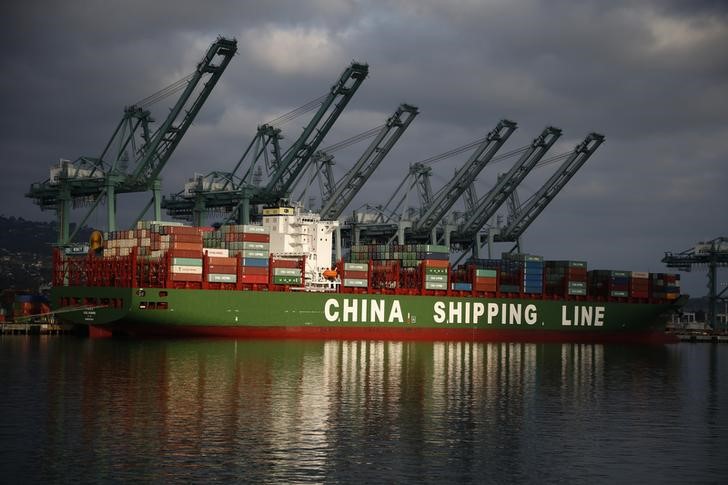By Henning Gloystein
SINGAPORE (Reuters) - Steep drops in Asian shipping rates are adding to fears about slowing trade, as a fall in export orders from countries across the region depresses demand for ships carrying 90 percent of world trade.
Rates for container ships carrying finished goods are down 30 percent this year, close to record lows despite a recent rebound, and rates for bulk carriers used to transport goods such as iron ore and coal are also near historic lows.
Although shipping rates also reflect sector-specific factors such as vessel orders and seasonal demand swings, analysts say they can act as a bellwhether of global trade given that the vast majority of goods are transported by ship.
"Everything is signalling a further slowdown in the global trade cycle. Nothing suggests a turnaround soon," said Frederic Neumann, co-head of Asian Economics Research at HSBC in Hong Kong, pointing to low export orders in Asia.
"We're not even seeing a big pick-up following the U.S. West Coast strike closure earlier this year," he added, referring to a dispute that snarled trans-Pacific maritime trade until a settlement on Feb. 20.
The declines come as China's factories suffered their fastest drop in activity in a year in April as new orders shrank, while exports have also fallen in countries such as South Korea and Indonesia.
"Shipping rates remain very soft, and Asian exports very weak, much weaker than export orders data would suggest," Westpac Bank said in a report.
While a slight pick-up of trading was expected in April following the U.S. strike and the Lunar New Year holiday in Asia, which both reduced trade flows, the overall seaborne and economic outlook was weak, said Robert Rennie, Westpac Global Head of Market Strategy.
"Shipping markets tell me a lot about what's going on. China is the key source of momentum and I genuinely don't see much momentum there. Growth looks soft and we're not yet seeing any recovery," he said.
The Shanghai Containerized Freight Index is down 30 percent this year and close to record lows, while the Baltic Dry Index (BADI) for bulk carriers is near historic lows. Tanker rates rates are faring better but are expected to run into headwinds.
